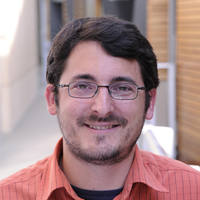Zeggini Team
Analytical Genomics of Complex Traits
Archive Page
This page is maintained as a historical record and is no longer being updated.
The Zeggini research team left the Sanger Institute in 2018, when Eleftheria Zeggini left the Institute to become Director of the Institute of Translational Genomics – Helmhotz Zentrum Munchen in Neuherberg, Germany. This page is no longer being updated, but is being maintained as a historical record of her research at the Wellcome Sanger Institute. To contact Ele, please email: eleftheria.zeggini@helmholtz-muenchen.de
Our research aimed to help identify the genetic determinants of complex human traits by using next-generation association studies to detect novel disease loci.
The overarching goal of our research was to elucidate the aetiopathological underpinnings of complex human disease. We carried out large-scale studies to investigate the genetic architecture of complex traits, with a primary focus on cardiometabolic and musculoskeletal phenotypes. In doing so, we identified and addressed statistical genetics challenges by designing, evaluating and proposing analytical strategies.
Advances in high-throughput genotyping and sequencing, coupled with the availability of large sample sets and a better understanding of human genome sequence variation, made next-generation genetic studies feasible. It was widely accepted that, in the area of complex trait association studies, technology was in danger of outstripping our capacity to analyse and interpret the results obtained. The Analytical Genomics of Complex Traits group conducted next-generation association studies for complex phenotypes, such as type 2 diabetes, obesity and related metabolic traits, and developed appropriate robust methodologies to analyse and interpret the data where necessary.
Our research aimed to:
- Identify novel complex trait loci by carrying out association studies;
- Develop, extend and make publicly available analytical tools;
- Understand the molecular mechanisms underpinning disease pathogenesis through functional genomics studies.
Our team conducted next generation genetic association studies in order to identify complex disease loci, and established robust analytical strategies to achieve this. We studied the role of common, low frequency and rare sequence variants using different approaches. For example, we explored powerful ways to make use of the genetic homogeneity that characterises population isolates in order to identify low frequency variant associations. We also conducted studies to enhance our understanding of the allelic architecture and genetic heterogeneity attributes that underlie populations of African descent, for complex trait signal fine mapping and de novo discovery. Finally, we employed functional genomics approaches to better understand the molecular landscape of disease pathogenesis and to understand disease pathways.
List of key projects:
Genomics of population isolates
Population isolates have well-documented characteristics that can facilitate the detection of rare variants associated with complex traits, including reduced phenotypic, environmental and genetic heterogeneity. We generated whole genome sequence data across well-phenotyped founder population cohorts (e.g. HELIC study) with a focus on medically relevant metabolic traits.
Genomics of African populations
Building on The African Genome Variation Project, which was set up to facilitate GWAS in African populations, the Uganda 2000 Genomes project produced whole-genome sequence data on 2000 individuals and dense genotype data on 5000 individuals from Uganda with phenotypic information on more than 50 traits, including cardiometabolic, anthropometric, haematological, liver, renal function and infectious disease traits.
Metabolic traits
Body weight and fat distribution measures are associated with increased risk of cardiometabolic disease. As part of the UK10K study, we explored the contribution of low frequency variation to 12 anthropometric traits in up to 63,000 individuals with whole genome sequence or imputed data.
Musculoskeletal disease
We carried out large-scale GWAS in diseases like osteoarthritis (e.g. arcOGEN study) and developmental dysplasia of the hip, and investigated the effect of rare variants through exome chip studies. We also examined radiograph-derived joint morphology traits, and instigated novel patient collections with access to a wide range of relevant endophenotypes. We applied functional genomics technologies (quantitative proteomics, RNA sequencing and methylation arrays) to articular chondrocytes from osteoarthritis patients undergoing total joint replacement with the aim of further characterising the genomic basis of disease and to inform the results of association studies.
Method development
We had an active interest in developing methods for the analysis of rare variants, estimating genome-wide significance thresholds for sequence-based studies and for studies in African populations, and worked on developing methods and tools to interpret the functional consequences of sequence variants, including the GWAVA algorithm for annotating non-coding variants. We refined a variant calling and imputation pipeline for very low-depth sequence data, and developed a meta-analysis method in the presence of sample relatedness or overlap.
We were part of a wide collaborative network and were actively involved in several national and international consortia:
1000 Genomes Project
arcOGEN
AGVP: African Genome Variation Project
ARGO: ARthroplasty and the Genetics of Osteoarthritis
DIAGRAM: Diabetes Genetics Replication and Meta-analysis consortium
EGG: Early Growth Genetics consortium
ENGAGE
GCAN: Genetics Consortium for Anorexia Nervosa
GDC: Global Diabetes Consortium
GIANT: Genome-wide International ANthropometrics Trait consortium
GlobalBPGen: Global Blood Pressure Genetics consortium
GOMAP: Genetic Overlap between Metabolic And Psychiatric diseases
HELIC: HELlenic Isolated Cohorts
INCHARGE: INternational CHildhood ARthritis GEnetics consortium
International T2D 1q Consortium
MAGIC: Meta-Analysis of Glucose and Insulin traits Consortium
QTGEN: QT interval GENetics consortium
SILC: Sequencing IsoLates Consortium
Spirometa Consortium
T2D Exome Chip Consortium
TreatOA
UK10K
UK Exome Chip consortium
UKHLS: UK Household Longitudinal Study/Understanding Society
UKT2DGC: UK Type 2 Diabetes Genetics Consortium
WTCCC: Wellcome Trust Case Control Consortium(WTCCC1, WTCCC2, WTCCC3)
Core team

Mrs Kyriaki Dede
Research Manager - Somatic Genomics Programme
Previous core team members

Dr Saher Ahmed
Head of Equality, Diversity and Inclusion

Arthur Gilly
Principal Bioinformatician

Sophie Hackinger
PhD Student

Dr Konstantinos Hatzikotoulas
Postdoctoral Fellow

Britt Kilian
Informatics & Data Manager

Dr Karoline Kuchenbaecker
Statistical Geneticist

Paris Litterick
Team Administrator

Dr Kalliope Panoutsopoulou
Career Development Fellow

Bram Prins
Statistical Geneticist

Fernando Riveros Mckay Aguilera
PhD Student

Ms Loz Southam
Senior Staff Scientist

Dr Julia Steinberg
Postdoctoral Fellow

Dr Daniel Suveges
Senior Bioinformatician

Dr Ioanna Tachmazidou
Staff Scientist
Partners
External
European Research Council (ERC)
External
Arthritis Research UK
External
Medical Research Council (MRC)
External
